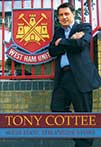 by Tony Cottee
by Tony Cottee
Philip Evans Media, £14.99
Reviewed by Mark Segal
From WSC 317 July 2013
Back in the day when you could phone footballers out of the blue for an interview, Tony Cottee was one of the few who didn’t hang up immediately or pretend they were busy and then turn their phone off at the time you were asked to phone back. Once he even gave me his home number. This, added to the fact he was a West Ham hero of mine, made him one of football’s nice guys but this side of his personality is sadly lacking in The Inside Story.
His second autobiography, the story begins as Cottee is winding down his career. A return to West Ham and a League Cup winner’s medal at Wembley with Leicester are the high points as he slowly slips down the leagues, ending up as player-manager at Barnet where it all went horribly wrong.
Like any centre-forward you’ve ever met or played with, Cottee is keen to let you know his scoring record but there seems little feeling behind the numbers. In fact the end of his career is not the real reason for the book, it’s the thing he needs to get out of the way before the main part – his attempt, and ultimate failure, to become West Ham chairman.
It was on the drive home from the 2004 play-off final defeat to Crystal Palace in Cardiff that Cottee decided to act, and the reader is taken through his attempts to put together a consortium to oust hated chairman Terry Brown from Upton Park. At first it’s a shambles, as he turns up to meetings without any kind of business plan, but slowly it begins to come together and each meeting, phone call and proposal is faithfully documented as the book becomes bogged down.
After realising he doesn’t have the money among West Ham supporters he spreads his net further and begins talking to a group of Icelandic bankers who eventually go it alone, buy the club and almost run it into the ground. Cottee is desperate for the reader to understand the time and effort he put into trying to save “his” club, which is why the progress of his consortium is documented in such detail. But in doing this he only glosses over the other areas of his life which were clearly suffering. He admits part of the reason his marriage failed was because of the time he dedicated to his consortium.
In a chapter about his work for Sky’s Soccer Saturday, Cottee claims his live reports are the next best thing to playing and perhaps it’s this transition from player to ex-player which could have been explored more. Many former pros talk about missing the buzz of the dressing room and maybe it’s even more acute for prolific strikers who are used to the adulation which comes with scoring goals. Cottee’s tireless work in trying to oust Brown could be a way of replacing this buzz, but it’s a shame the mechanics of his takeover are more in evidence than the human story.
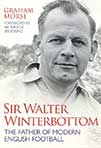 The father of modern English football
The father of modern English football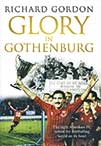 by Richard Gordon
by Richard Gordon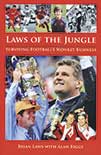 Surviving football’s money business
Surviving football’s money business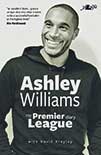 by Ashley Williams with David Brayley
by Ashley Williams with David Brayley